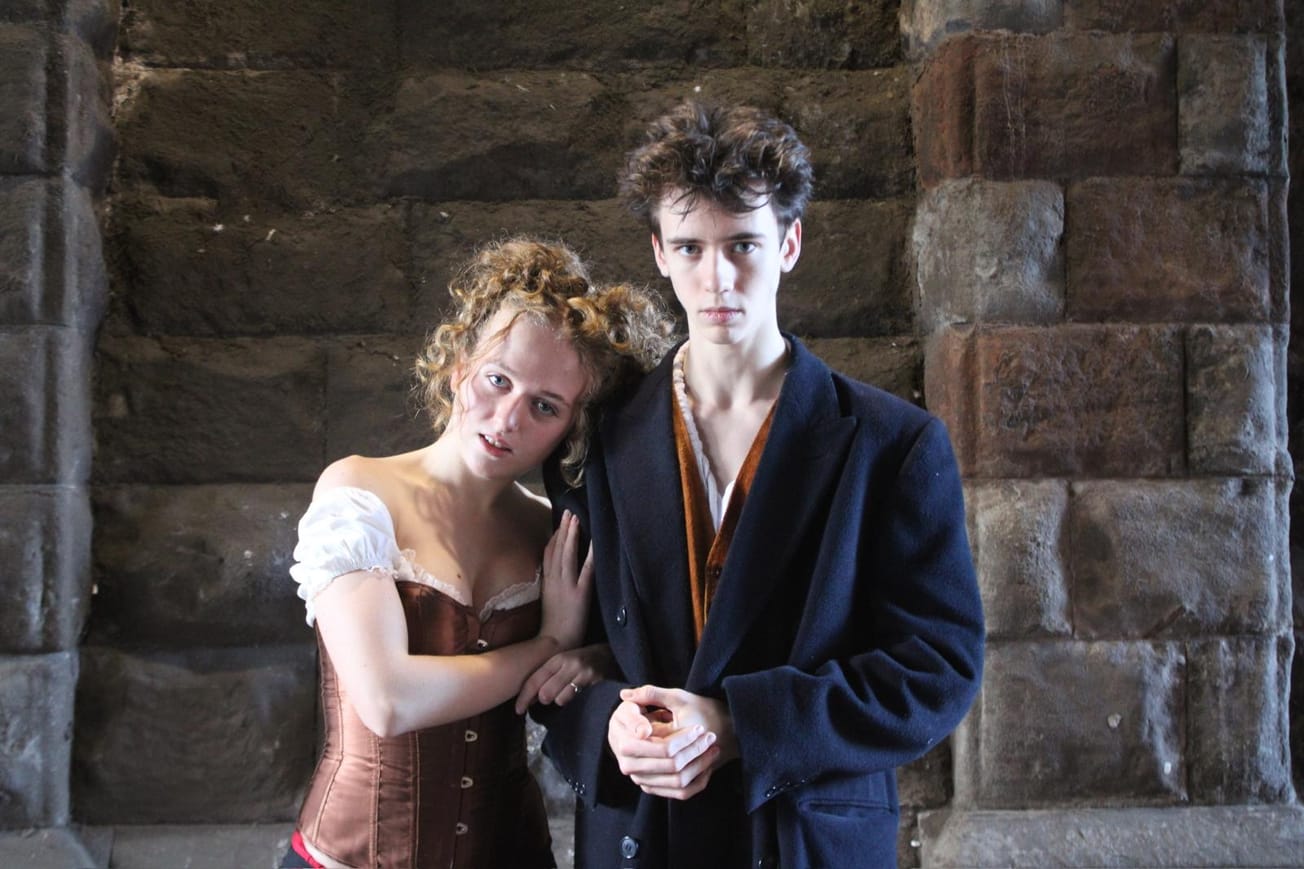By Milan Perera, Second Year English
He is condemned to the lowest circle of Hell in Dante’s Inferno, alongside Brutus and Cassius. His very name is synonymous with the act of treachery. He is accused of the most heinous crime: betraying the Son of God. His name is Judas Iscariot, the most reviled name in history.
The latest production of ‘The Last Days of Judas Iscariot’ by the Bristol Old Vic Theatre School is a slick, fast-paced psychological drama that keeps you on the edge of your seat for full three hours (with a 15 minute break.)
One of the most recent entries to the canon of theatre, ‘The Last Days of Judas Iscariot’ was written by the Pulitzer Prize winning playwright, Stephen Adly Guirgis. It saw its stage premiere in 2005 under the direction of the late Philip Seymour Hoffman at The Public Theatre, New York City to great acclaim.
The story begins to unfold in Hell where Judas (Ajani Cabey) is languishing in a catatonic state, unresponsive to any comments or commands. Judas’ mother, Henrietta (Veronica Hoyle) wails to the high heavens, ‘If my son is in hell, there’s no God!’ In the curious realm of Purgatory, suspended between Heaven and Hell, lies the busy courtrooms of Hope. Judge Littlefield (Tom Atkinson) has a heap of cases that requires his verdict. His pronouncement could condemn a miscreant to eternal damnation in Hell or could provide the greenlight for the upward journey towards Heaven.
He is petulant and impatient, and his mood definitely does not improve when the defence attorney Fabiana Aziza Cunningham (Evie Hargreaves) presents a case pertaining to the infamous villain, Judas Iscariot. But it is an offer he cannot refuse; a writ signed by God. The Counsel for Prosecution, Yusuf El-Fayoumy (played by Alexander Uzoka) stands by the point of view that Judas deserved his punishment in hell. The cross examination of various iconic historical figures by the two attorneys sheds some light on to hitherto neglected aspects of the curious case of Judas Iscariot. The last few days of Judas Iscariot on earth are analysed through the prism of a courtroom drama, and the end result certainly does not disappoint.
Mother Theresa, Sigmund Freud, Satan, Pontius Pilate, Caiaphas the Elder and Mary Magdalene are called upon to give evidence in the courtrooms of Hope as the audience awaits with baited breaths. Set not in a hazy past but in the vibrant Harlem. The ensemble’s grasp of various American accents and slang was outstanding while the bold costume designs managed to highlight the verve and vitality of present-day New York. This is a slick theatrical move which provides a timeless quality to the unfolding drama.
Tom Atkinson perfectly captured the superciliousness of Judge Littlefield, who constantly scolds and berates the Bailiff, played to a tee by Joséphine-Fransilja Brookman. The two counsels played by Alexander Uzoka and Evie Hargreaves excel in portraying the ruthless, cold, and calculated streaks of the legal eagles for which they are known for. But they also manged to capture the tender and vulnerable nature of those characters, as when El-Fayoumy, forgetting his surroundings started acting like a fanboy when Mother Theresa appeared in the docks.
Gender swapping of Pontius Pilate was a slick move and theatrically playful as portrayed by the brilliant Chiara Lari. It had the sparkling vibe of Megan Thee Stallion as opposed to a shrewd and scheming governor who presided over the crucifixion of an innocent man. The appearance of Jesus in the courtrooms was brief but their calming presence was skilfully captured by Joe Usher. Caiaphas the Elder (Max Guest) is nothing like an anachronistic religious stickler but a radiant being dressed in green velvet shirts and trousers who’s large ‘Star of David’ is more akin to the bling associated with 50 Cent.
Patrick McAndrew’s portrayal of Sigmund Freud was phenomenal where he was able to capture the contradictory persona of the Father of psychoanalysis. In the cross-examination, Dr Freud emphatically states that Judas should not be in Hell. Judas’ former colleague, Simon the Zealot (Joshua Hurley) too was called upon to provide evidence in this rollercoaster trial. The verdict hangs in balance.

The biggest cheer came when Mother Theresa (Yazmin Kayani) appeared on the docks, as you have never seen her before with jeans and designer sunglasses. The iconoclastic portrayal was both brave and bold from the director’s part. Miss Cunningham had a field day with Mother Theresa as she ravaged the latter-day saint with bombshell revelations such as receiving money from war criminals while opposing abortion.
But what a season Alex Crook has had so far? Every role he was assigned to, from Lord Capulet in ‘Romeo and Juliet’ to Satan in ‘The Last Days of Judas Iscariot’, were played with aplomb. Crook perfectly captures the complex nature of Satan, who can be as charming enough to swap t-shirts with strangers while still being capable of expletive-laden outbursts. The titular role was executed with panache and finesse by Ajani Cabey, whose portrayal of the most maligned historical figure triggers myriad of questions on whether he was misguided in good faith to bring about the liberation of his fellow countrymen.
Nik Partridge’s direction radiates freshness and conviction to which the highly polished ensemble of the graduates of the Bristol Old Vic Theatre School responded with buoyancy and vigour. The staging at The Station, a former fire station, added an extra layer of intimacy between the audience, with the cast routinely sitting among the audience members.
Featured Image: Milan Perera | Epigram
The production runs from 5 - 12 of March at the Station. A brave and bold production not to be missed.








